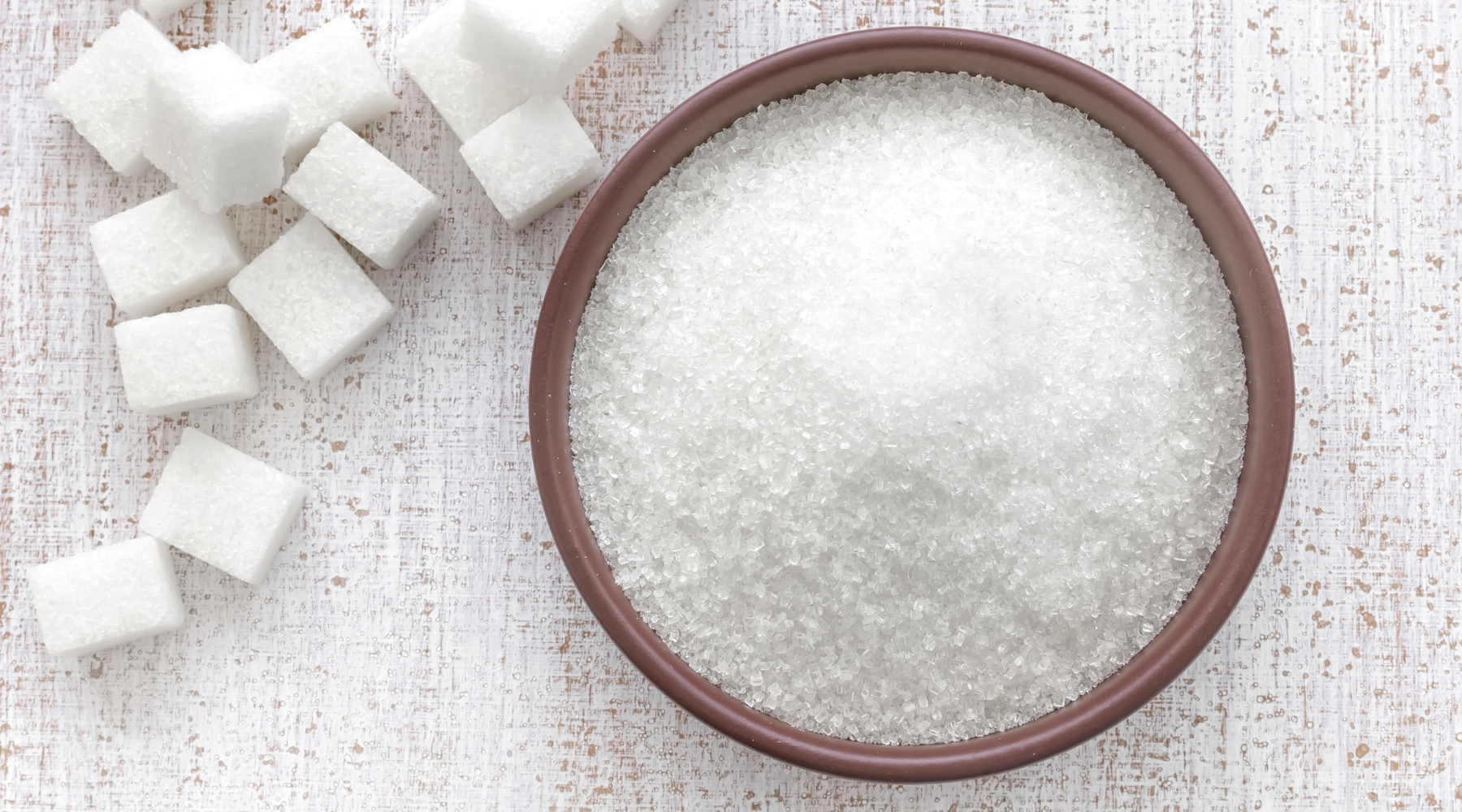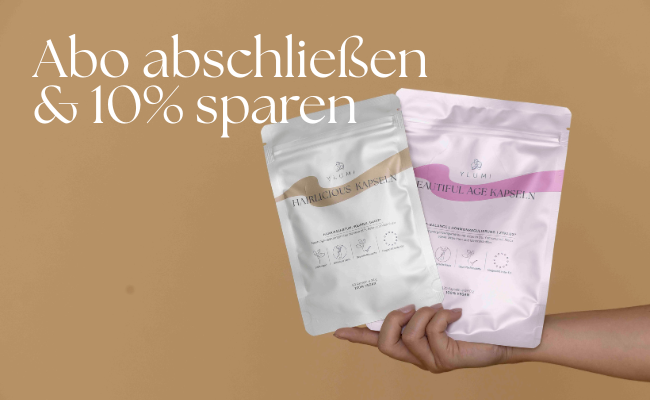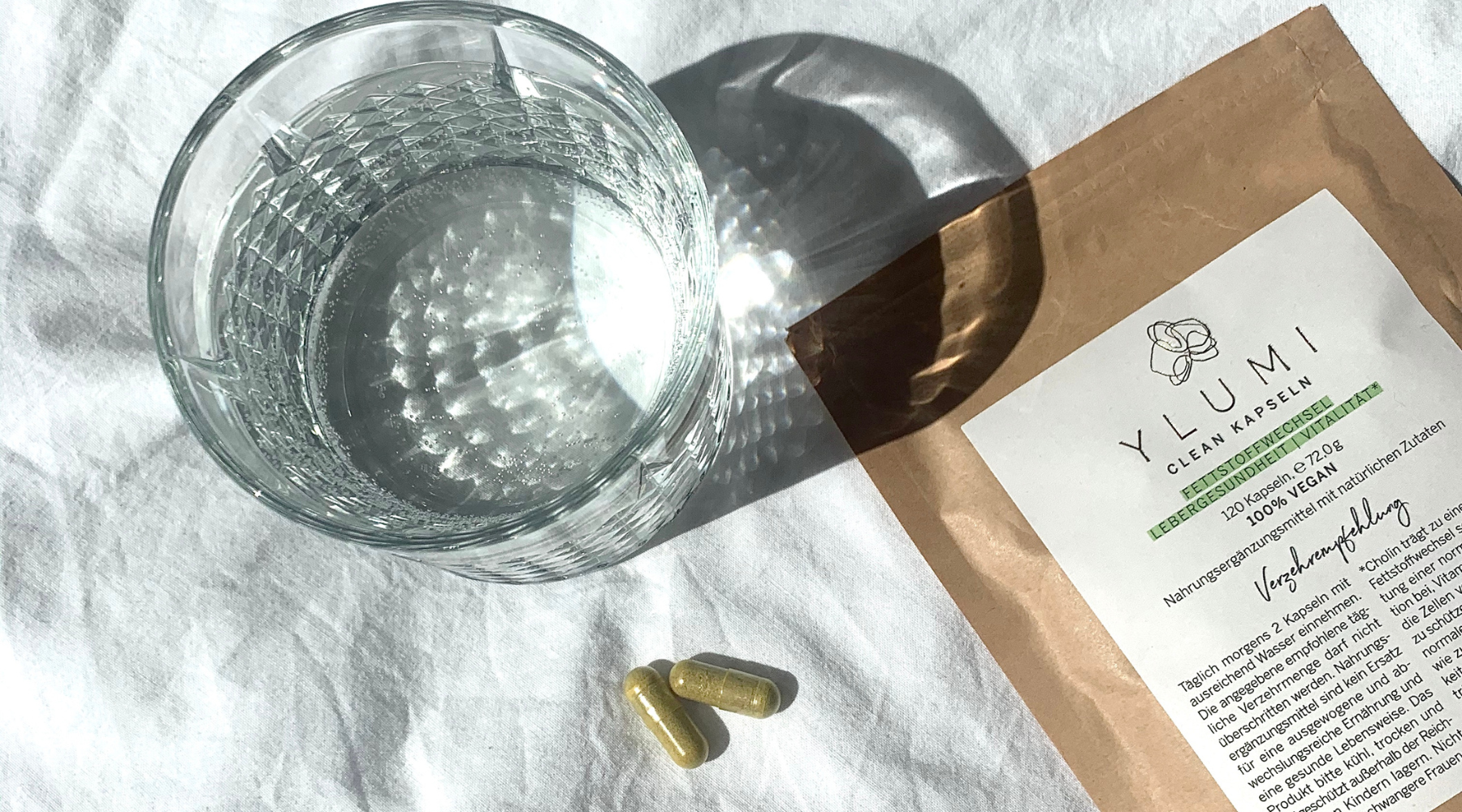
ALTERNATIVES TO SWEETS AND WHAT SUGAR DOES TO THE BODY
A piece of cake here, a glass of lemonade there, and of course, half a bar of chocolate on the couch in the evening – sugar is an integral part of our diet. While it's important for our bodies, too much has numerous negative effects. Therefore, it's important to occasionally reach for an alternative to sweets.
Did you know that the average per capita consumption of sugar in Germany is 32.5 kilograms? A shockingly high number, considering the effects sugar can have on the entire organism. In this article, you'll learn what sugar does to the body and mind, and what healthy and delicious alternatives there are to sweets.
Contents
- Alternative to sweets: Sugar is not the same as sugar
- What does sugar do in the body?
- Sugar as an addictive substance
- Cancer cells like sugar
- Weight gain
- Diabetes caused by too much sugar
- Poor intestinal health
- Impairment of memory performance due to sugar
- What does sugar do to the psyche?
- Avoiding sugar: effects
- How can you avoid sugar?
- Alternative to sweets: snacks of a different kind?
Alternative to sweets: Sugar is not the same as sugar
This article primarily focuses on industrial and household sugar, also known as sucrose. This is a disaccharide consisting of glucose and fructose.
When we eat sucrose, enzymes in the gastrointestinal tract break it down into glucose and fructose. Glucose then causes a rise in blood sugar levels. It is then transported by the hormone insulin into the body's cells, where it serves as an energy source. Fructose, or fruit sugar, is first converted into energy indirectly. Excesses are converted into fat.
What does sugar do in the body?
Sugar consumption affects our bodies in various ways. This primarily concerns added sugar, i.e., all types of industrial sugar. This is found primarily in highly processed products such as convenience foods, ready-made sauces, cooking and baking mixes, and commercially available sweets.
Below we present the six most serious effects of sugar on the body:
-
Sugar as an addictive substance
The brain reacts to the consumption of sugar in a similar way to that of cocaine. Shocking, isn't it? It's often said that people find it easier to avoid sugar altogether than to simply reduce their consumption. This fact further underscores the similarity to drugs. Unfortunately, the addictive potential of sugar is still underestimated.
-
Cancer cells like sugar
Sugar consumption causes the body to produce more insulin. This is not only responsible for the rise in blood sugar levels, but is also a growth hormone and is considered a food source for cancer cells. This causes them to grow even faster, which is why cancer patients are advised to avoid sugar altogether.
-
Weight gain
Excessive sugar intake over a prolonged period disrupts our hunger and satiety systems. The result: insulin resistance. The hunger hormone ghrelin and the satiety hormone leptin are no longer properly regulated, which can lead to constant feelings of hunger. Furthermore, increased levels of the stress hormone cortisol are also released. All of this negatively impacts body weight.
-
Diabetes caused by too much sugar
Sugar consumption can also lead to metabolic syndrome , which causes weight gain, increases blood pressure and cholesterol levels, and, in the worst case, can develop into diabetes.
-
Poor intestinal health
As you probably already know, 80 percent of our immune system is located in our gut. Gut health is therefore essential for our overall well-being. The intestinal flora doesn't particularly appreciate excessive sugar consumption. It becomes unbalanced, which can lead to a weakened immune system, accelerated aging, and poor skin.
-
Impairment of memory performance due to sugar
There are now many studies on the negative effects of sugar on the brain. Research shows that too much sugar can lead to memory problems, brain degeneration, and even diseases like Alzheimer's or dementia. You can also read how to improve your memory performance on our blog.
What does sugar do to the psyche?
Excessive sugar consumption can also have a negative impact on our psyche. A UK study found that just 67 grams of sugar per day increases the likelihood of developing mental disorders such as anxiety and depression.
Avoiding sugar: effects
It's frightening, but many of us are already addicted to sugar. Therefore, giving it up will initially cause symptoms similar to withdrawal from a drug: Your mood may plummet, you'll feel tired and irritable, and you may experience symptoms like headaches and skin blemishes.
In this context, we can recommend a detailed article on the topic of initial worsening during a relief cure .
Even if the outlook isn't particularly rosy, it's worth sticking with it. Not only can you look forward to finally being off the drug of sugar, but you'll also feel more energized, your blood sugar levels will stabilize, you'll automatically lose excess weight, and your breath will smell fresher. Sounds good, right?
How can you avoid sugar?
As already mentioned, many people find it easier to completely avoid sugar or sweets than, for example, to eat just one piece of chocolate and put the rest back in the pantry. So, the rule here is: see what works for you.
An obvious way to combat sugar addiction is to simply stop buying sugary products. There are many alternatives to sweets—you're sure to find the right product or delicious recipes in the supermarket. We can also recommend any activities that distract you from your cravings. You can also try spicy foods, as eating spicy foods has been proven to reduce sugar cravings.
Alternative to sweets: snacks of a different kind?
5 healthy alternatives to sweets
Fruit and dried fruit
Fruit has a natural sweetness and can reduce your cravings for processed sugar. However, you should primarily choose fruits with a lower fructose content. These include fruits and berries such as:
- raspberries,
- strawberries,
- Apricots or
- Avocado (yes, it is a fruit).
If the cravings are really bad, dried fruit can also be used. Whether dates, prunes, or apricots – they are sweet, delicious, rich in vitamins, and also stimulate digestion.
Nuts
Although nuts are high in fat, these are healthy fats. They're the perfect energy source for between meals and help curb your cravings.
dark chocolate
A chocolate with 85% cocoa content contains less sugar, tastes incredibly good, and best of all, you need much less to satisfy your chocolate cravings.
Popcorn
Popcorn is very low in calories – provided you make it yourself at home. There are now great preparation tools available that require no fat at all. You can then "season" it with salt or, sparingly, with a healthy sugar alternative like coconut sugar. Just be careful not to oversweeten it – that would be counterproductive during your sugar withdrawal.
Nice Cream
Homemade fruit ice cream with no added sugar is very trendy and the perfect snack or dessert, especially in summer. Simply add frozen fruit of your choice to a blender until it reaches a creamy texture. You can then top the nice cream with delicious superfoods like cacao nibs or hemp seeds.
How YLUMI helps you give up sweets
We love healthy recipes and believe that sugar-free doesn't have to be boring. That's why we'd like to recommend our recipe for delicious Beauty Bliss Balls . These will help you curb your sugar cravings and provide a delicious alternative to sweets in your home.
One product that can help you give up sugar is our CLEAN CAPSULES . With their powerful ingredients like Rhodiola Rosea, Chlorella, Moringa, Turmeric, and Milk Thistle, they boost your body's fat metabolism and also support your liver. To benefit your gut and digestion, our BELLY BEAUTY CAPSULES , with probiotics from 15 tested viable lactic acid bacteria, each containing 10 billion CFU (colony forming units per day), are the product of choice. And if you're feeling run down and lacking energy, you can reach for our ENERGY CAPSULES – they take effect after 30-60 minutes, depending on the situation, and boost your concentration and performance. Feel free to combine the products; they work well together.




